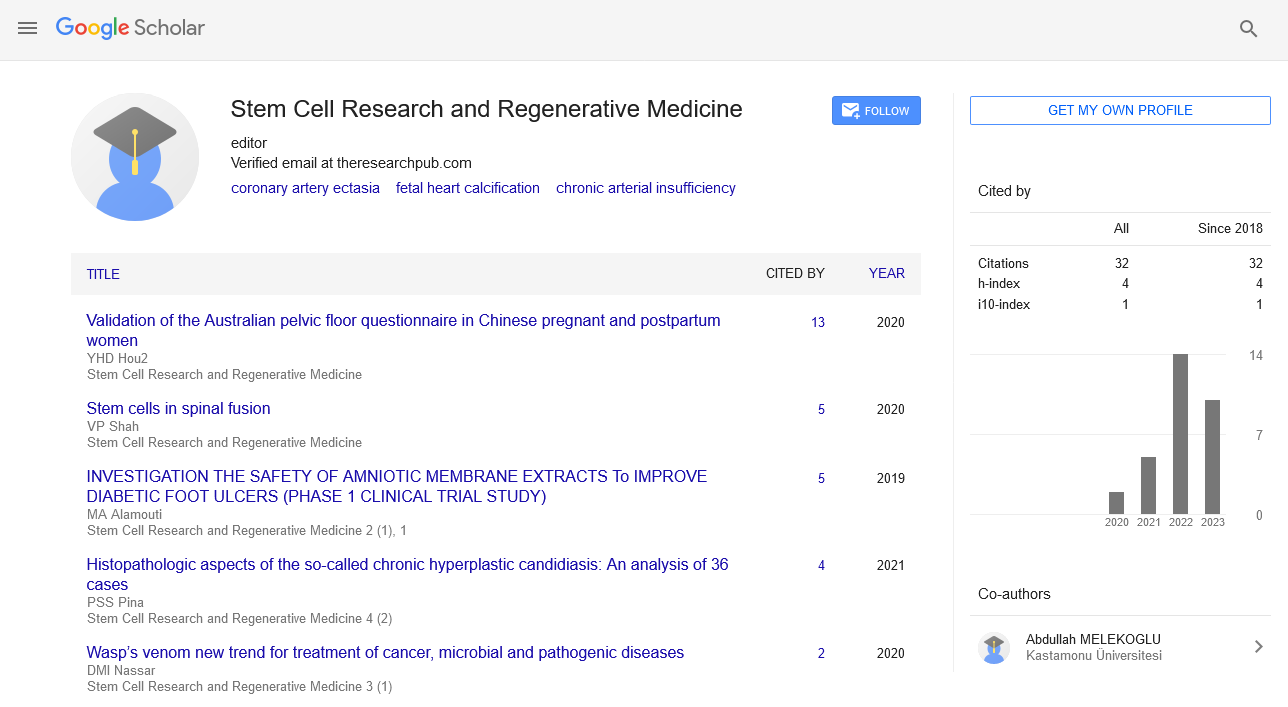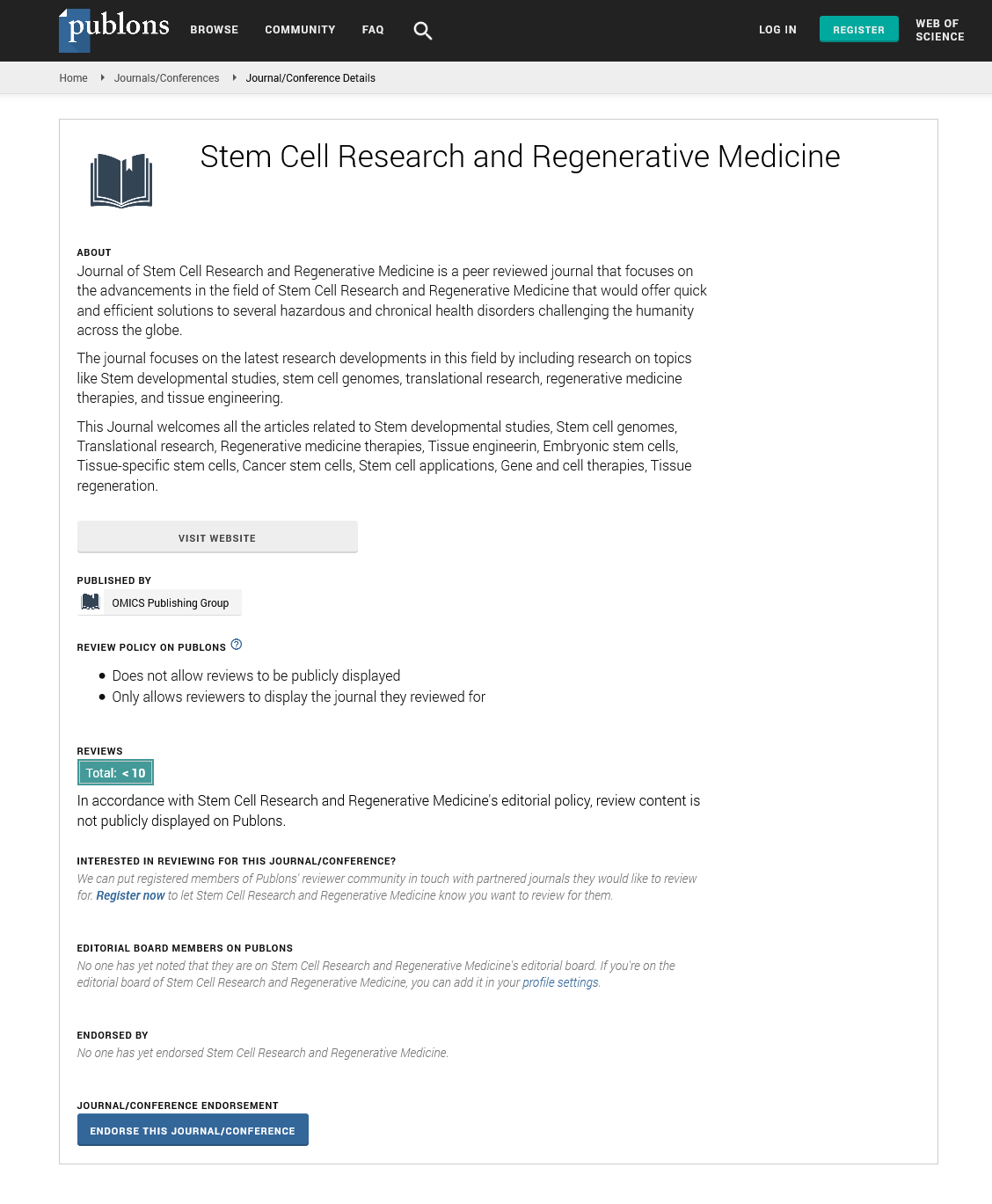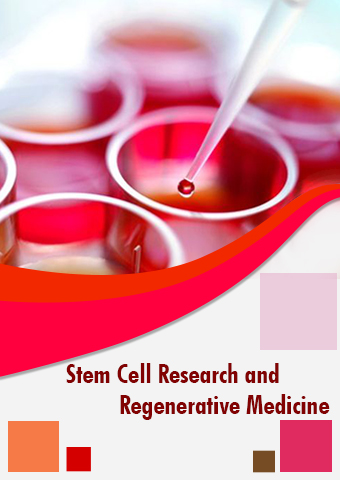Short Communication - Stem Cell Research and Regenerative Medicine (2020)
Dental pulp stem cell-derived factors alleviate subarachnoid hemorrhage induced neuroinflammation and ischemic neurological deficits
Te-Fu Chen
National Taiwan University Hospital, Taiwan
Abstract
Aneurysmal subarachnoid hemorrhage (aSAH), characterizedby the extravasation of blood into the subarachnoid space caused by an intracranial aneurysm rupture, may lead to neurocognitive impairments and permanent disability and usually carries poor outcome. Dental or gingiva-derived stem cells have been shown to contribute to immune modulation and neuroregeneration, but the underlying mechanisms are unclear. In the present study, we sought to investigate whether dental pulp stem cells (DPSCs) secrete certain factor(s) that can ameliorate the neural damage and other manifestations in a rat aSAH model. Twenty-four hours after the induction of aSAH, microthrombosis, cortical vasoconstriction and the decrease in microcirculation and tissue oxygen pressure were detected. Intrathecal administration of DPSC-derived conditioned media (DPSC-CM) ameliorated aSAH-induced vasoconstriction, neuroinflammation and improved the oxygenation in the injured brain. Rotarod test revealed that the aSAH-induced cognitive and motor impairments were significantly improved by this DPSC-CM administration. Cytokine array indicated the major constituent of DPSC-CM was predominantly insulin growth factor-1 (IGF-1). Immunohistochemistry staining of injured brain tissue revealed the robust increase in Iba1-positive cells that were also ameliorated by DPSCCM administration. Antibody-mediated neutralization of IGF- 1 moderately deteriorated the rescuing effect of DPSC-CM on microcirculation, Iba1-positive cells in the injured brain area and the cognitive/motor impairments. Taken together, the DPSC-derived secretory factors showed prominent therapeutic potential for aSAH. This therapeutic efficacy may include improvement of microcirculation, alleviation of neuroinflammation and microglial activation; partially through IGF-1-dependent mechanisms.
Biography
Te-Fu Chen has completed his training as been a neurosurgeon at the age of 32 years and PhD program at the age of 39 years from National Taiwan University Hospital, ROC. He is the associate professor of Chinese Culture University, ROC. He is also the chairman of Non-invasive Cancer Therapy Research Institute Taiwan and the medical director of human clinical cell therapy in a medical center in Taipei.


